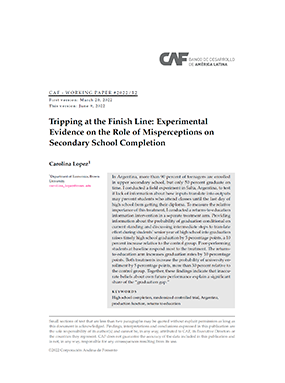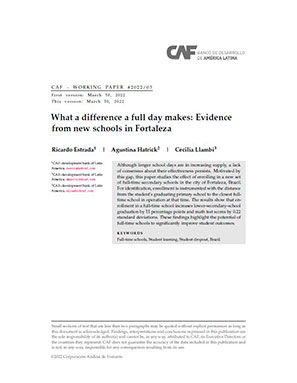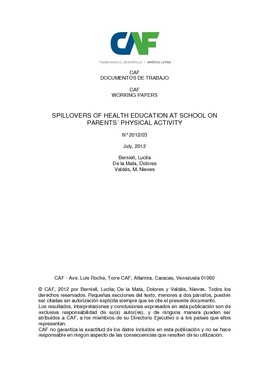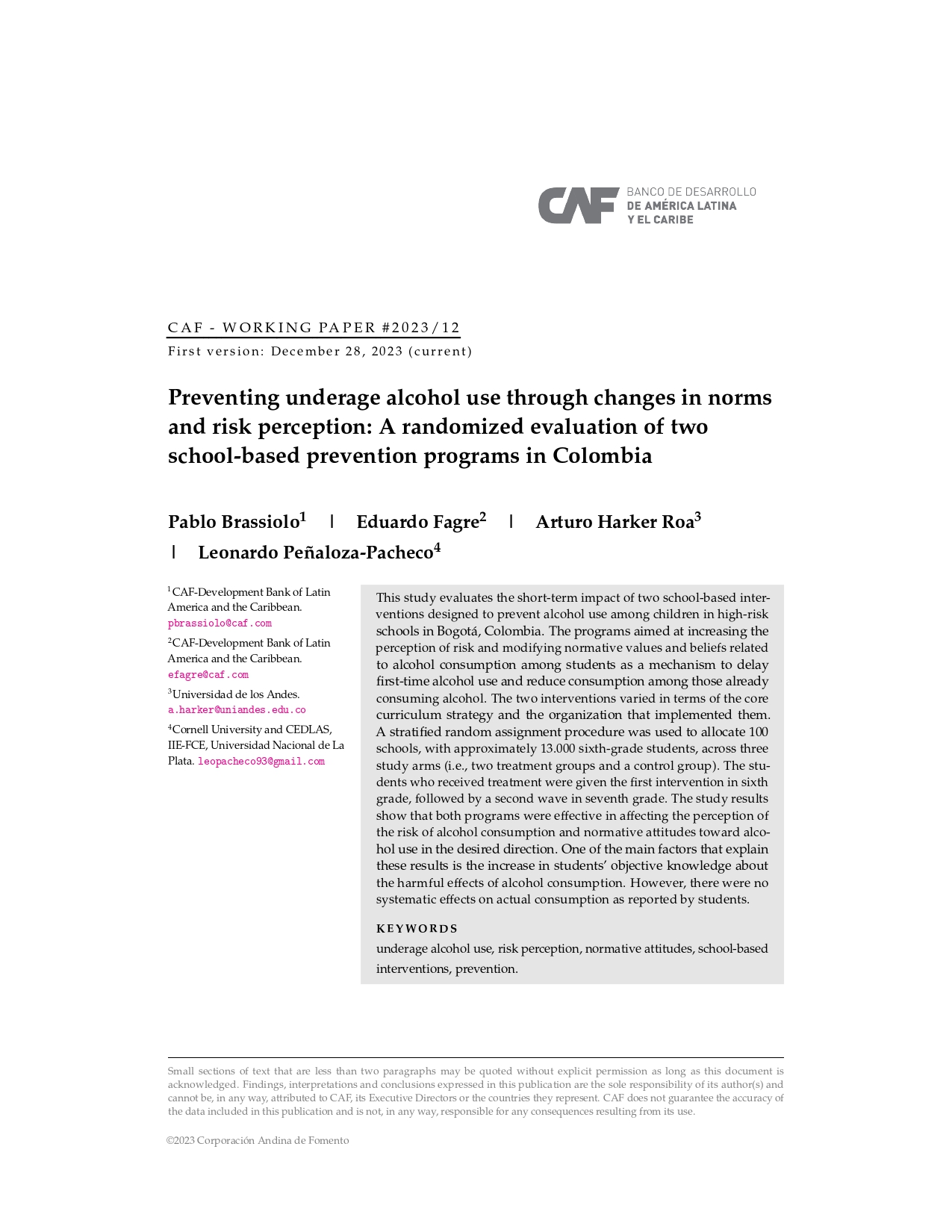Tripping at the Finish Line Experimental Evidence on the Road of Misperceptions on Secondary School Completion
Abstract
In Argentina, more than 90 percent of teenagers are enrolled in upper secondary school, but only 50 percent graduate on time. I conducted a field experiment in Salta, Argentina, to test if lack of information about how inputs translate into outputs may prevent students who attend classes until the last day of high school from getting their diploma. To measure the relative importance of this treatment, I conducted a returns-to-education information intervention in a separate treatment arm. Providing information about the probability of graduation conditional on current standing and discussing intermediate steps to translate effort during students’ senior year of high school into graduation raises timely high school graduation by 5 percentage points, a 10 percent increase relative to the control group. Poor-performing students at baseline respond most to the treatment. The returns-to-education arm increases graduation rates by 10 percentage points. Both treatments increase the probability of university en-rollment by 5 percentage points, more than 30 percent relative to the control group. Together, these findings indicate that inaccu-rate beliefs about own future performance explain a significant share of the “graduation gap.”
Subject
Country / Region
Date
2022-06-14Cite this publication
Belongs to collection
Items Relacionados
What a difference a full day makes: Evidence from new schools in Fortaleza
Although longer school days are in increasing supply, a lack of consensus about their effectiveness persists. Motivated by this gap, this paper studies ...
Spillovers of health education at school on parents´ physical activity
To prevent modern health conditions like obesity, cancer, cardiovascular illness, and diabetes, which have reached epidemic-like proportions in recent ...
Preventing underage alcohol use through changes in norms and risk perception: A randomized evaluation of two school-based prevention programs in Colombia
This study evaluates the short-term impact of two school-based inter ventions designed to prevent alcohol use among children in high-risk schools in ...





